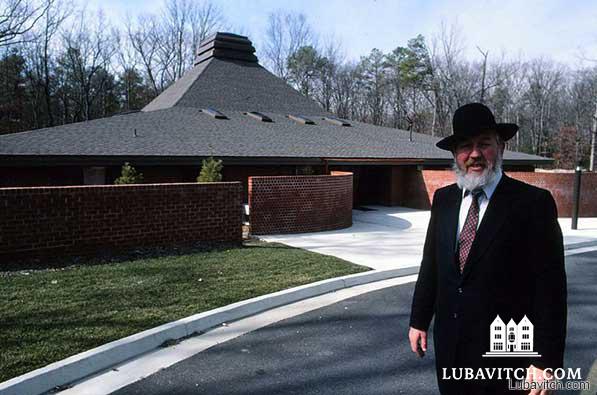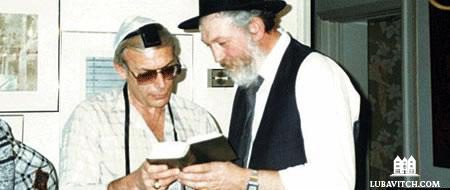In honor of the upcoming 29th yahrtzeit of Rabbi Yankel Kranz, of blessed memory, who established Chabad of the Virginias in 1976, we present a thought on this week’s Torah portion written by his son, Rabbi Yossel Kranz, current director of Chabad of Virginia in Richmond.
This week’s Torah reading is the same as we read the Shabbat after my father’s burial. At the end of the portion of Shoftim, there is a deeply moving expression of communal responsibility that was at the heart of my father’s life. It is the story of a body found mysteriously at the edge of a city and of the eglah arufah, the broken heifer that is slaughtered as a sin offering by the city’s leaders. The elders of the closest city are commanded to verbally establish their innocence and yet, afterwards are also told to atone for their sin.
If they did not commit the crime, what is their sin? The sages explain that although there is no individual culpability, there is an underlying communal responsibility which was amiss. In a community where someone is uncared for and left helpless, the leaders must bear some responsibility. This is not about murder; this is not about manslaughter; this is about social responsibility. This is about concern for our fellow man.
My father was once asked by a Federation leader what he hoped to accomplish in Richmond, Virginia. His response was simple: “I want to sit down with every Jewish family in their living room,” he said. His goal was to meet the Jews of Richmond one by one and to ask what he could do for them. In the end, he found that the needs were diverse. Yes, he put up Mezuzahs on people’s doors. But he also started the Jewish News, a dating service called “The Chosen People,” and an innovative Jewish retreat center. He was many things to many people but his goal was always the same. He wanted to meet the needs of the Richmond Jewish community. He was the consummate Jewish leader.
The story of the eglah arufah, or broken calf, resonates personally with me as I remember my father today. In the dramatic biblical story of Jacob and his son Joseph, there is a reference to the eglah arufah. When Joseph sends a message to his father that he is alive and well and living in Egypt, he does so with wagons, filled with food. The Hebrew word for wagon, agalah, is similar to the word for the broken calf, eglah. In this way, Joseph was hinting to his father that he remembered that the last time they studied together, they learned this story about communal responsibly. It was this shared secret knowledge that made Jacob sure that the wagons were indeed from his long lost son.
A story of a father named Yaakov (Jacob) who shares Torah study with a son named Yosef (Joseph) is one that is deeply poignant for me. My father studied Torah with me and my brothers every day during the years we studied at the Richmond Rudlin Torah Academy. For my father, communal responsibility encompassed his family as well. As busy as he was, he put the spiritual needs of his children first.
I am grateful for what I learned from him then, and for what I continue to learn from him through the stories I hear from Richmonders every day.
He had big shoes to fill, but I am determined to continue to work towards his goal and his vision of leadership.


Mom
such a beautiful Tribute to Tatti.
Larry
As a long time Jew in Richmond, I am proud of Rabbi Yankel’s son, Rabbi Yossel who continues his dads legacy in an equally beautiful and inspiring way!